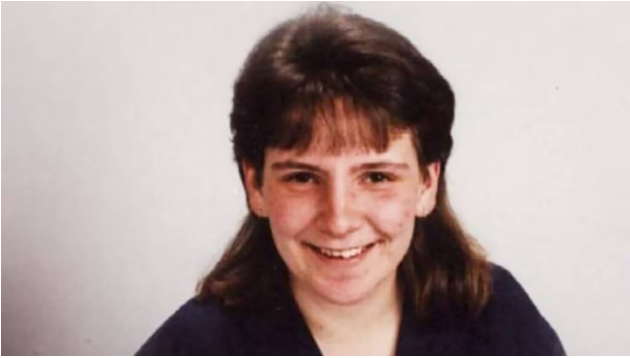
That is one of the main questions for a jury set to consider the verdicts of two people charged with Blackmoore’s murder.
Former debt collector David Hawken, 50, and Rebecca Wright-Meldrum, 51, are on trial in the High Court at Christchurch after denying murdering Angela Blackmoore on August 17, 1995.
A third person, Jeremy Powell, earlier admitted murdering Blackmoore and alleged he carried out the killing on instruction by Hawken after he allegedly offered $10,000 for the killing to help free up a property deal. He said that Wright-Meldrum, who was his partner at the time, accompanied him to Blackmoore’s home and that she used her friendship with Blackmoore to gain entry to the house.
On Wednesday, in week five of the trial, the jury will retire to consider its verdict.
In her closing address to the jury, Crown prosecutor Pip Currie said there was "overwhelming" and "compelling" evidence to prove both defendants were guilty of murder.
She said Powell was not the "calculated psycho" the defence had portrayed him as, but rather a "young lad … very out of his depth".
"He was manipulated and threatened into carrying out this murder."
Powell’s evidence was "powerful" and while he lied initially to police in 1995 when spoken to, when he was interviewed again 24 years on he admitted his involvement and explained how it happened, and who he did it with.
The jury could convict on Powell’s evidence alone but the jury had "corroboration" in several respects, Currie said.
She referred to Hawken’s partner at the time, Toni Parris, who said there were several meetings between Hawken, Wright-Meldrum and Powell at the Cashel St home she lived in with Hawken before Blackmoore’s murder.

She said she asked the couple if they had been up to anything exciting, to which Wright-Meldrum said they had killed somebody and they had stabbed them, that the person had let them into the house, and that they were an "ex-friend".
Cartwright asked who committed the murder and Powell said he did it, but Wright-Meldrum said she was also involved.
She did not believe them and never gave it another thought. She first contacted police in 2020 after Powell had been arrested, but would not give her name as she thought it was gang-related. She was not interviewed by police until she reported her concerns again after the first trial was abandoned in May.
She also pointed to Blackmoore’s ex-husband, William Blackmoore. At the time of Blackmoore’s murder, Hawken was "assisting" the couple, who had separated, with the sale of one of their properties. The property needed to be sold to reduce the debt on their mortgage and protect their home on Cashel St from being sold.
In his evidence, William Blackmoore told the jury that two years after the murder he served a trespass notice on Hawken, who then allegedly threatened him by saying he would name him as the reason for Hawken getting Blackmoore killed.
Intercepted phone calls also played a significant part in the trial. About 15 minutes after being called by police in October 2019 about being interviewed, Wright-Meldrum called her partner to say if she was not home to assume she had been arrested.
In a call with someone else, she said she was going to prison and made arrangements for her animals and her home.
In another call, which Currie said was a "slam dunk", Wright-Meldrum said Blackmoore’s murder had nothing to do with any gang, and that while police were interested in gangs "we were safe, and now we are f.....".
Currie said Hawken was "far more savvy" than Wright-Meldrum, and had not been as "forthcoming" with detail over the phone as her.
She said it was "interesting timing" that shortly after Powell and Wright-Meldrum’s arrests, he was on the phone with family and friends saying he had a gut issue and may have to leave the country for an operation.
Currie rebutted the suggestion Hawken was only trying to help the Blackmoores, and was "the good guy".
"It’s pretty clear that David Hawken was not just getting involved here to help out a mate, he had his eye on Cashel St for his own ulterior motives," she said.
"He got involved because he was only thinking about one person and that was David Hawken."
She said by July 1995, things were "really dire" for Hawken. He was unsure what was going to happen to the house he was living in, the bank was putting on pressure, a potential mortgagee sale, his ACC payment was not coming through and bankruptcy proceedings had been started. He also had a baby on the way.
"If you want motive there it is … At the root of all this was money and greed."
Crown case ‘fundamentally flawed’
Hawken’s lawyer, Anne Stevens KC, said in her closing there was a "whole series of red flags about the Crown case".
She said there were two options suggested - murder which was "repugnant, illegal and fraught with risk", or doing a deal with Blackmoore which was lawful, risk-free and didn’t involve Hawken’s money.
"Option one, murder, is the Crown case.
"It doesn’t need me to tell you that it’s nonsense, it’s also a no-brainer because Angela’s death can’t benefit David Hawken, her death results in transfers of properties by survivorship to William Blackmoore."
Hawken was "a man of ideas, a talker, a negotiator, not an aggressor" and the Blackmoores’ "Mr fix-it".
Stevens said a deal had already been done regarding selling property before Blackmoore was murdered.
She referred to several witnesses, including Parris, who she said were "not credible" and biased.
Stevens said it "defies belief" to hire a killer and then not pay them.
"What a terrible idea … piss off the murderer by not meeting your side of the contract. Is a hired killer going to walk away from their fee? … not likely."
She said Blackmoore’s murder had nothing to do with Hawken.
William Blackmoore’s evidence that Hawken had confessed was "ridiculous" and "completely nonsensical".

Stevens said Powell was a liar, referring to his first statement to police, his denials at the beginning of his interview in 2019, and said he had lied during the trial.
She said Powell had an incentive to blame Wright-Meldrum and Hawken as he could tell his family and friends he was threatened into murder, and for when he was sentenced.
The only person in the trial "obsessed with death" was Powell, Stevens said.
"He purposely inflicted a death on Angela that was sadistic and involved her fighting for her life."
There was a "total absence of motive" for Hawken, she said.
"There was no motive, there was no gain, and there’s no power."
"How did he benefit? The Crown theory is fundamentally flawed."
Convicted killer a ‘liar’
Wright-Meldrum’s lawyer, Philip Shamy, told the jury the most important evidence in the trial was the "silent evidence".
"The Crown paid little attention to it, said very little, probably for very good reasons, probably because it doesn’t support their case against Mrs Wright-Meldrum."
He said the Crown spent most of their time defending Powell, which should concern the jury, he said.
Shamy said the silence evidence did not lie, it did not guess, nor did it have a motive.
"This silent evidence is the forensic evidence, forensic evidence from the scene. It’s the pathological evidence," he said.
"How can Mr Powell be relied upon if the scene, what’s found at the scene, doesn’t support it … how can he be relied upon if the autopsy evidence doesn’t support him?"
He asked the jury to be "very careful" in taking into account the intercepted phone calls, warning everything had context.
Powell told the jury Wright-Meldrum helped "mop up the blood", however there was no evidence of that occurring, nor were her fingerprints found.
"Is she that clever?... She’s a stripper, not a forensic scientist … she’s just taken part in the butchering of her friend and she’s savvy enough to wipe fingerprints, but only her own? How do you do that?"
Powell’s accusations were "nonsense", he said, which meant the Crown case "stumbles".
Shamy said Powell’s evidence that he struck Blackmoore with a baseball bat three times on the head so hard that it broke was not consistent with the injuries she suffered.
"The sheer brutality of this killing is quite outstanding in some ways, it’s a savage attack. A bat and a big blade, against an unarmed woman in her kitchen in her house, who had no idea this was coming.
"What kind of man, what kind of human being does that? Is he someone you would trust?"
Wright-Meldrum was the one who picked Blackmoore up off the street and got her a job in the kitchen at a strip club.
"She looked after her, she even discussed the art of makeup with her, she helped her out, she had no motive to participate in what you’ve seen," he said.
Shamy disputed Blackmoore’s murder was a "contract hit", and called Powell a "liar".
"He lies when it suits him. And of course, he’s a murderer. And not just any murderer, but someone who is capable of doing what you’ve seen. This is not a one-wound murder, this is brutal."
He said Powell did not need Wright-Meldrum to get inside Blackmoore’s home as she knew him, and he was not a stranger.
"In terms of whether he’s a psychopath, I don’t know. But what I’d suggest is demonstrated to you is he’s a liar, he’s a murderer, and … he’s a pervert," he said.
"The key to this case as the Crown says is Powell, and he’s a liar, you cannot trust. It poisons the whole Crown case, there’s not sufficient evidence to convict Mrs Wright-Meldrum of murder."













